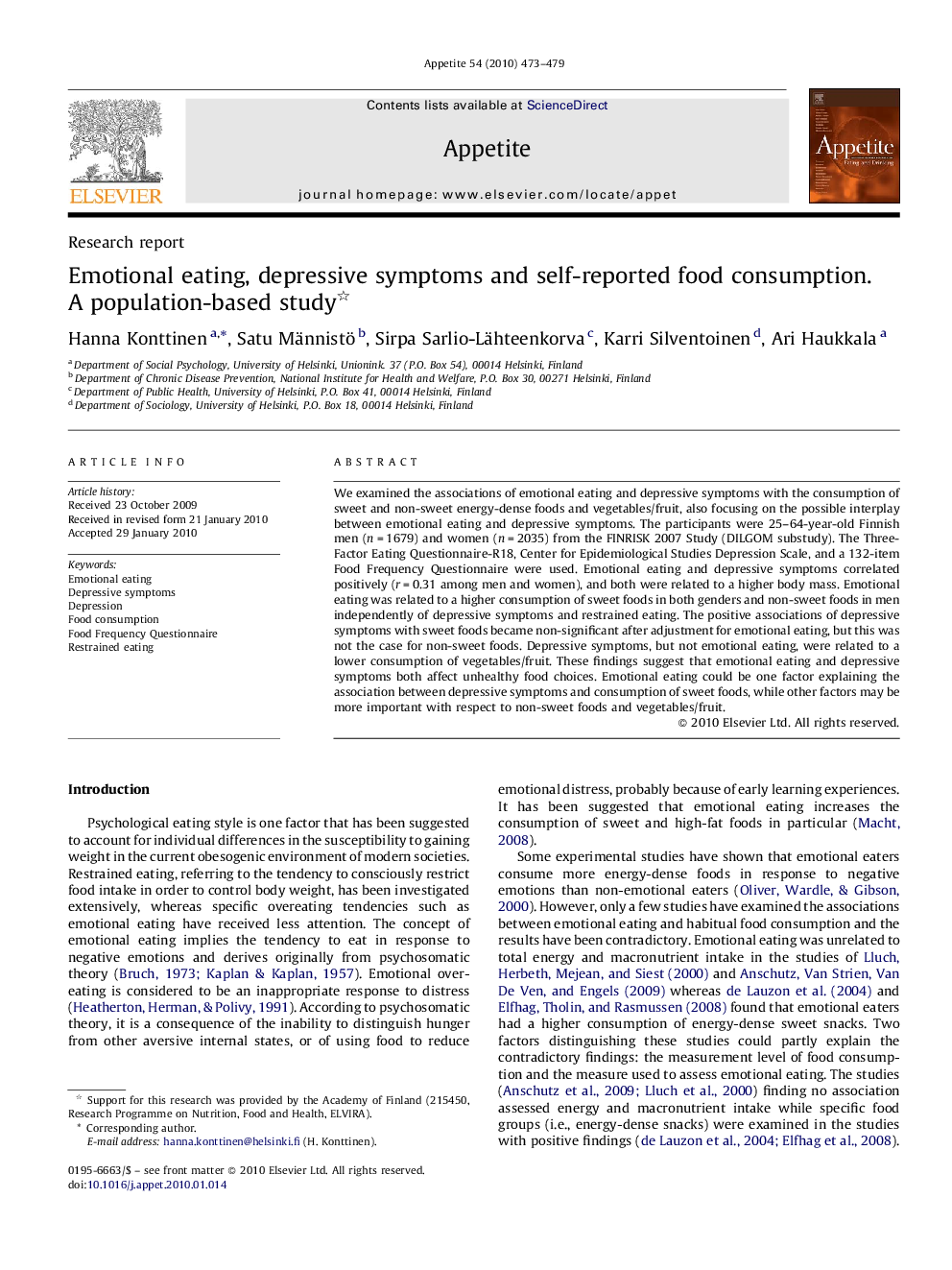| کد مقاله | کد نشریه | سال انتشار | مقاله انگلیسی | نسخه تمام متن |
|---|---|---|---|---|
| 940836 | 924898 | 2010 | 7 صفحه PDF | دانلود رایگان |

We examined the associations of emotional eating and depressive symptoms with the consumption of sweet and non-sweet energy-dense foods and vegetables/fruit, also focusing on the possible interplay between emotional eating and depressive symptoms. The participants were 25–64-year-old Finnish men (n = 1679) and women (n = 2035) from the FINRISK 2007 Study (DILGOM substudy). The Three-Factor Eating Questionnaire-R18, Center for Epidemiological Studies Depression Scale, and a 132-item Food Frequency Questionnaire were used. Emotional eating and depressive symptoms correlated positively (r = 0.31 among men and women), and both were related to a higher body mass. Emotional eating was related to a higher consumption of sweet foods in both genders and non-sweet foods in men independently of depressive symptoms and restrained eating. The positive associations of depressive symptoms with sweet foods became non-significant after adjustment for emotional eating, but this was not the case for non-sweet foods. Depressive symptoms, but not emotional eating, were related to a lower consumption of vegetables/fruit. These findings suggest that emotional eating and depressive symptoms both affect unhealthy food choices. Emotional eating could be one factor explaining the association between depressive symptoms and consumption of sweet foods, while other factors may be more important with respect to non-sweet foods and vegetables/fruit.
Journal: Appetite - Volume 54, Issue 3, June 2010, Pages 473–479